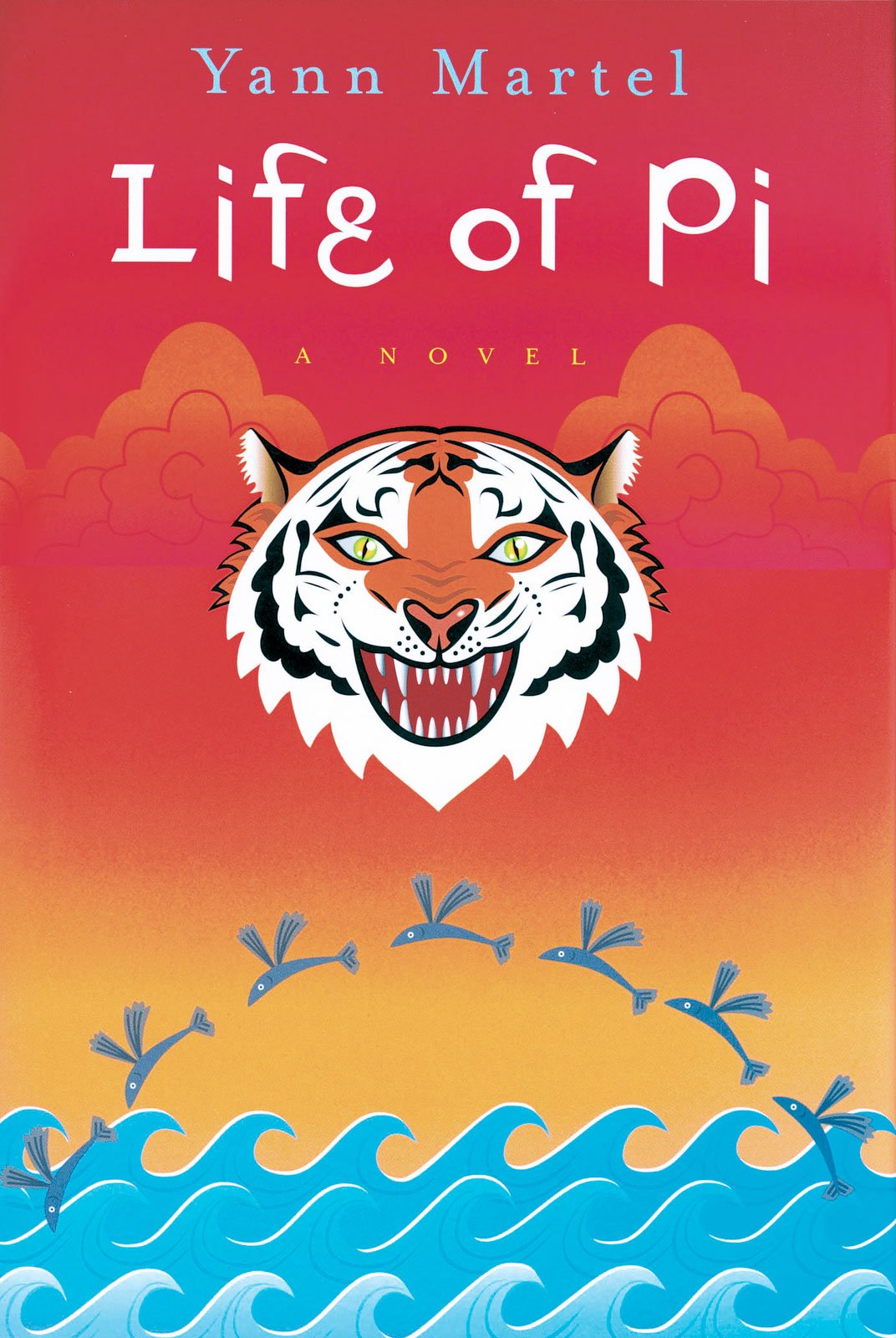Life of Pi
“life is so beautiful that death has fallen in love with it - a jealous, possessive love that grabs at what it can”
On the surface, it's the story of a 16 year old Indian boy named "Pi" who, when he and his zookeeping family decide to transplant themselves and some animals to Canada, ends up stranded on a lifeboat with a hyena, a zebra, an orangutan, and a 450-lb Bengal tiger named "Richard Parker."
In reality, this book is an examination of faith in all its forms. Young Pi loves God, and to prove it he becomes Christian and Muslim in addition to his native Hinduism. He also loves animals, and much of the book examines animal psychology and its relationship to human psychology in a vibrant, interesting way.
It is not so much that The Life of Pi, is particularly moving (although it is). It isn’t even so much that it is written with language that is both delicate and sturdy all at once (which it is, as well). And it’s certainly not that Yann Martel’s vision filled passages are so precise that you begin to feel the salt water on your skin (even though they are). It is that, like all of the great Houdini’s of the literary world, in the last few moments of your journey – after you’ve felt the emotions, endured the moments of heartache, yearned for the resolution of the characters’ struggle – that you realize the book is not what you thought it was. The story transforms, instantly, and forever.
Some say that the middle portion of the novel is quite a bore, however I disagree. I thought the middle portion really portrayed how deeply Martel researched while writing Life of Pi as he describes in incredible detail Pi’s plan for survival and all the aspects involved in it. This is the kind of story that will always teach life lessons, no matter at which age you read it and regardless of the amount of re-reads. You will always walk away from this book having learnt something new about life, the world, and about yourself. It is truly one of the most beautiful stories i have ever had the privilege of reading.
